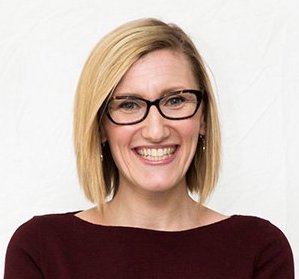Self Study Module 3: HCV Case Study - Ronald
October 29, 2021
The accreditation for this activity has expired.
Primary Audience:
Primary care physicians, NPs, PAs, and other clinicians involved in the care of patients with or at risk of hepatitis C virus (HCV) infection
Relevant Terms:
HCV, hepatitis C, hepatitis C virus, HCV infection, hep C, primary care, PCP
Stacey B. Trooskin, MD, PhD, MPH
Chief Medical Officer and Director of Viral Hepatitis Programs
Philadelphia FIGHT Community Health Centers
Clinical Assistant Professor of Medicine
Perelman School of Medicine
University of Pennsylvania
Philadelphia, Pennsylvania
 Dr. Stacey B. Trooskin is Chief Medical Officer and Director of Viral Hepatitis Programs at Philadelphia FIGHT Community Health Centers and is a faculty member of the Infectious Diseases Division at the University of Pennsylvania. Dr. Trooskin received her MPH in Public Health from Yale University, her PhD (Epidemiology) from Rutgers School of Public Health and her MD from the University of Medicine and Dentistry of New Jersey, at the Robert Wood Johnson School of Medicine. Dr. Trooskin specializes in infectious diseases, HIV medicine, HIV/HCV co-infection, and internal medicine. She has an interest in public health, particularly the epidemiology of hepatitis C and identifying and overcoming barriers to testing and treatment. She recently completed a 3 year term of service as a member of the AASLD/IDSA HCV treatment guidance panel and currently serves as the Chief Medical Advisor to the National Viral Hepatitis Roundtable and is a member of the Technical Advisory Board (TAB) of the Coalition for Global Hepatitis Elimination.
Dr. Stacey B. Trooskin is Chief Medical Officer and Director of Viral Hepatitis Programs at Philadelphia FIGHT Community Health Centers and is a faculty member of the Infectious Diseases Division at the University of Pennsylvania. Dr. Trooskin received her MPH in Public Health from Yale University, her PhD (Epidemiology) from Rutgers School of Public Health and her MD from the University of Medicine and Dentistry of New Jersey, at the Robert Wood Johnson School of Medicine. Dr. Trooskin specializes in infectious diseases, HIV medicine, HIV/HCV co-infection, and internal medicine. She has an interest in public health, particularly the epidemiology of hepatitis C and identifying and overcoming barriers to testing and treatment. She recently completed a 3 year term of service as a member of the AASLD/IDSA HCV treatment guidance panel and currently serves as the Chief Medical Advisor to the National Viral Hepatitis Roundtable and is a member of the Technical Advisory Board (TAB) of the Coalition for Global Hepatitis Elimination.
